Behavioural change / Cycling infrastructure / Public Spaces / Urban Mobility Design
The Importance of Temporary Sustainable Mobility Measures: BALM Seminar Series
Mobycon contributes to a new seminar series adressing fast-track measures for continuous cycling networks in Germany. The series focuses on quicker implementation and interventions that won’t take years to implement. The seminar is organised by Innovative Städte GmbH & Co. (i.n.s.) on behalf of the German federal agency for logistics and mobility (BALM). The event brought together transport planners, municipal staff and associations.
The seminar series addresses a key challenge in sustainable urban mobility: how can cities provide for cycling, particularly when traditional planning processes take years to implement? With quick builds, cities allow their residents to imagine different configurations of the public realm that give more space to people, hopefully generating support for more permanent interventions.
The seminar series takes place in five German cities throughout the year and kicked off on 22 May in Munich. Our colleague Bernhard Ensink shared a series of examples from across Europe that showcase the power of quick, low-cost interventions. These ‘pop-up solutions’ will allow cities to test, evaluate, and refine mobility solutions in a time-efficient way:
Pop-Up Bike Lanes
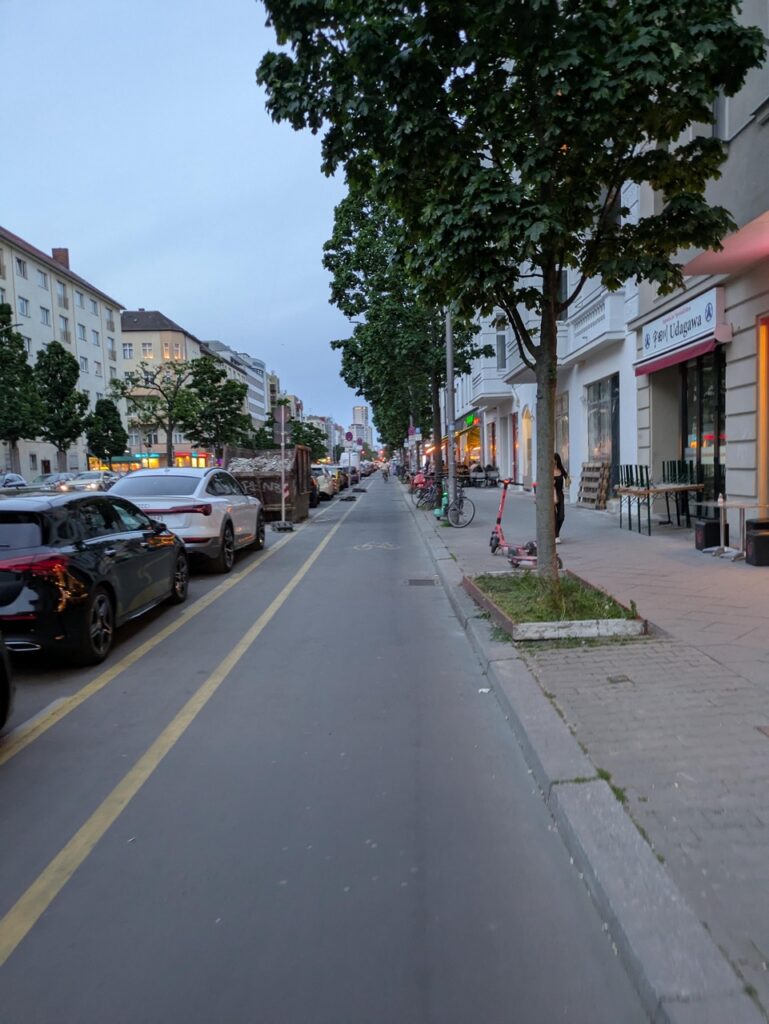
Developed during the COVID-19 pandemic, these lanes were implemented in as little as 10 days in Berlin’s Friedrichshain-Kreuzberg district. Bernhard co-authored the original implementation handbook and shared how many of these temporary lanes have since become permanent fixtures in the cityscape.
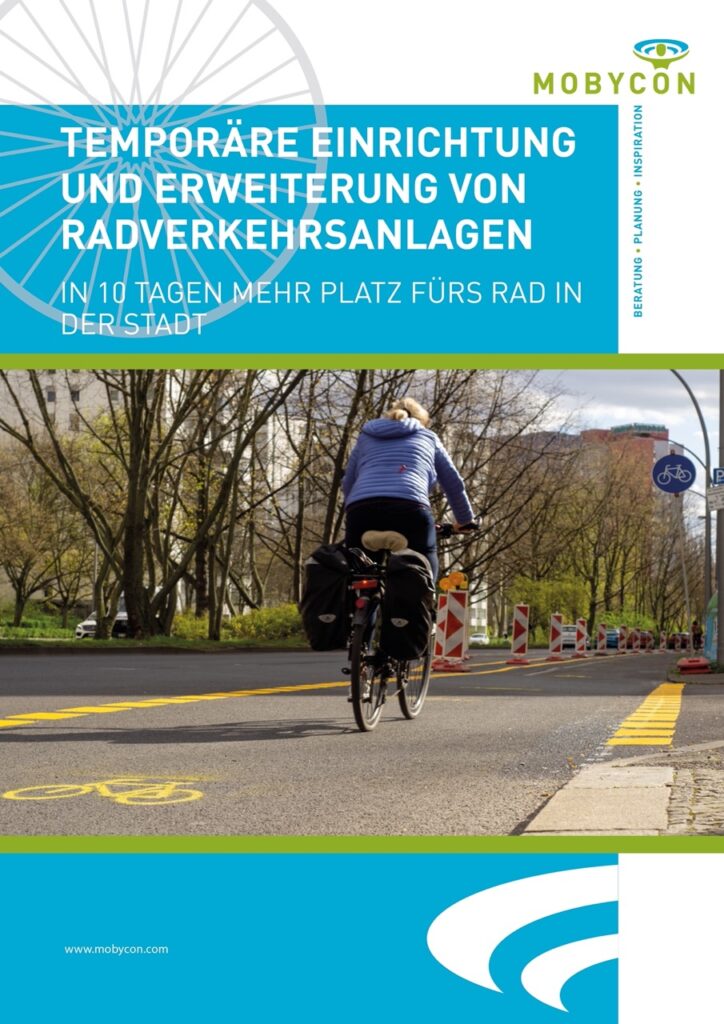
Fietsvlonders
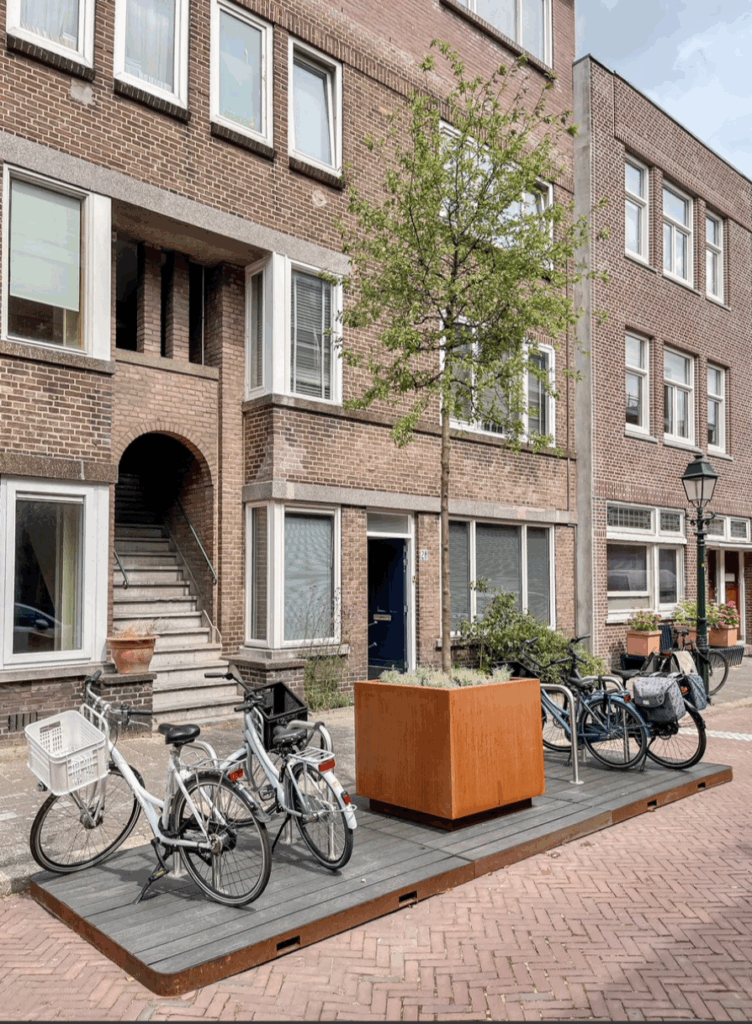
These modular platforms replace car parking spaces with bicycle racks. If well-received by residents, they can serve as a pilot phase for permanent bike parking conversions.
Street Reallocations Using Tactical Tools
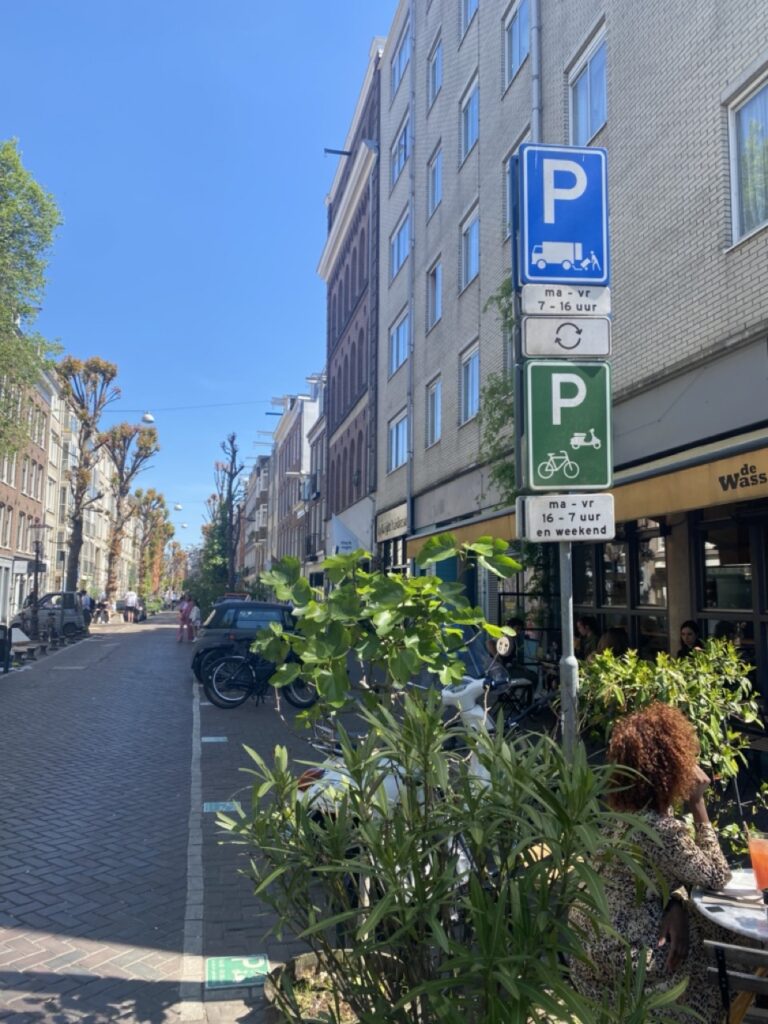
Using relatively simple tools like duct tape, laser projections and concrete barriers, cities can rapidly reconfigure streets to better serve pedestrians and cyclists. Bernhard demonstrated how public space can be reallocated with these low-barrier tools to benefit cyclists and pedestrians or simply to create more space for bicycle parking facilities.
Wiener Schulstraßenmodell (Vienna School Streets)
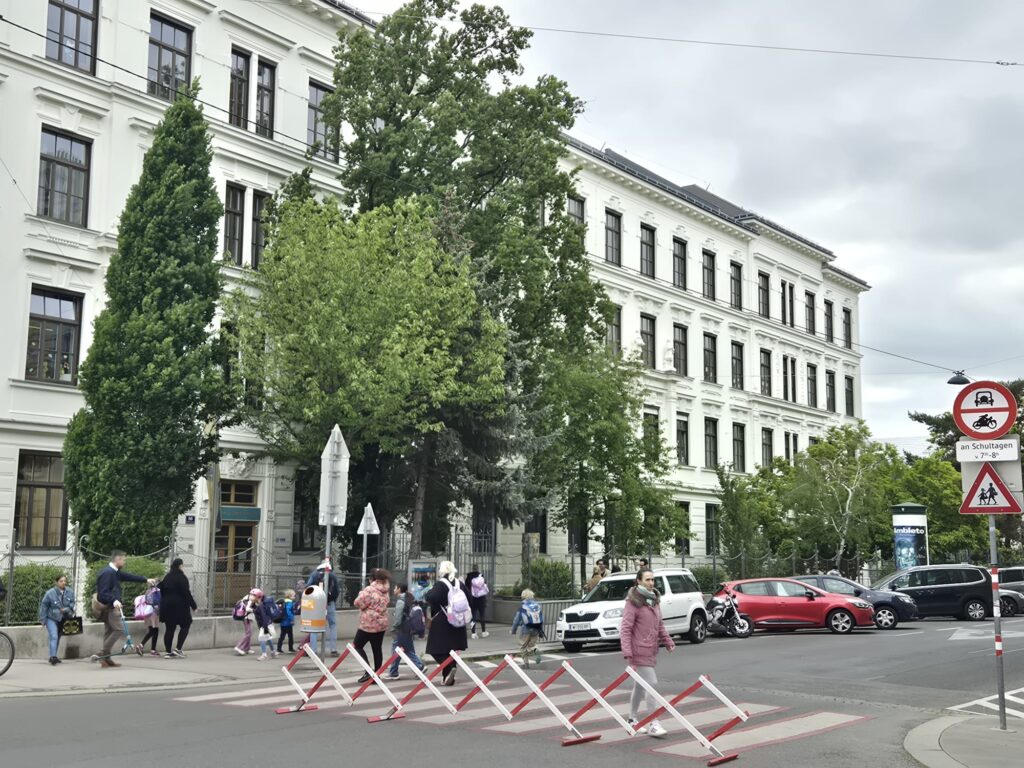
In this approach, streets in front of schools are temporarily closed to individual motorized traffic during drop-off and pick-up hours, enhancing safety for children and easing congestion.
Special Events and Construction Zones
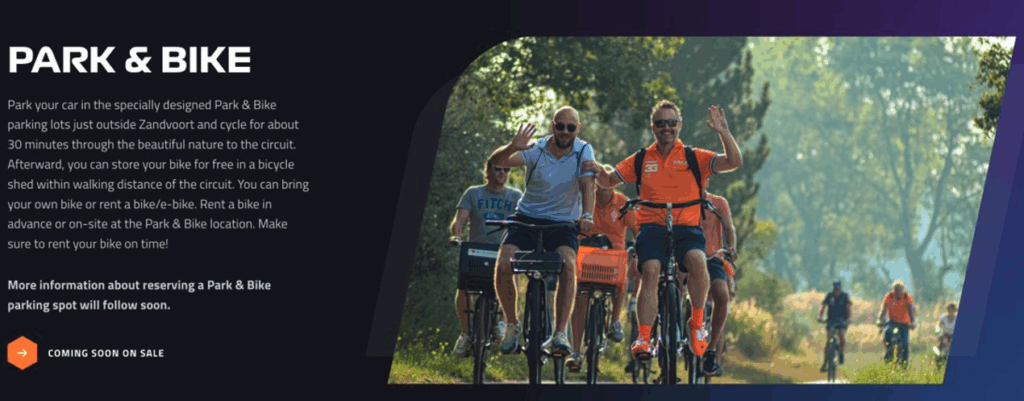
Events and major construction projects present challenges for mobility planning, but also opportunities to test new temporary solutions. Some of the ones discussed by Bernhard: Cycling-first arrival strategies for the Formula 1 Grand Prix in Zandvoort and equipping firefighters with e-bikes to make sure they can reach their stations during road construction.
Looking Forward
Beyond the technical aspects, we hope that these seminars foster dynamic exchanges between public sector employees, planners and experts from across disciplines. Bernhard and his colleague Dagmar Köhler are now looking forward to continuing the dialogue in upcoming seminars in Berlin, Cologne, Mainz, and Erfurt. With each event, we deepen participant’s understanding of how temporary measures can act not only as pop-up solutions, but as stepping stones toward permanent solutions that wouldn’t otherwise be possible.
We thank BALM and i.n.s. for the opportunity to contribute to this important series and look forward to further discussions of sustainable mobility solutions like these.
Interested in a lecture series from one of our experts for your own organization? Contact Anna Luten to discuss it further and take a look at the Training and Capacity Building page on our website!

